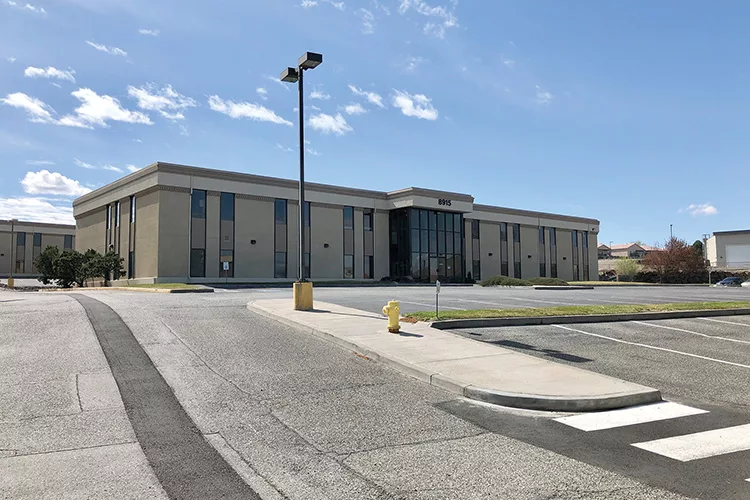
Home » Lamb Weston adapts to do its part to feed people
Lamb Weston adapts to do its part to feed people

April 15, 2020
Lamb Weston Inc. has enjoyed an idyllic run since it spun out from ConAgra Foods in late 2016.
Rising revenue and rising share prices spoke to a global appetite for its french fries, many produced in the Mid-Columbia, where Lamb Weston is a major employer as well as major buyer of Washington-grown potatoes.
The coronavirus pandemic appears to be putting a dent in its growth, company executives said in an April 1 earnings report.
Lamb Weston, based in Eagle, Idaho, employs thousands in the Tri-Cities. It has corporate offices in Kennewick, research and development facilities in Richland and french fry plants dotting the region.
Local operations haven’t been spared by coronavirus. The company temporarily closed a fry plant in Pasco for sanitizing after a worker tested positive for the virus that causes the deadly COVID-19.
A company spokeswoman said it was scheduled to reopen April 13.
For the first time since it began trading as a publicly-owned company, Lamb Weston said the outlook is too uncertain to offer financial performance estimates for its current fiscal year, which ends in May.
With only two months left in fiscal 2020, it said the uncertainty around the pandemic forced it to withdraw its 2020 financial guidance.
It will still pay a dividend, but it is taking bold steps to manage the uncertainty, Tom Werner, president and chief executive officer, told analysts during the earnings call.
The company will alter production to match shifting demand. It has drawn almost all of its $500 million credit line to bolster its cash position.
It also suspended a stock buyback program, leaving $195 million on its balance sheet. And it is curtailing capital spending – paring back to the $150 million Werner said is minimum spending needed to keep the “wheels on.”
Overall, Werner said Lamb Weston (NYSE: LW) appears to be well-positioned to weather the crisis.
Providing an assured food supply and keeping employees and food safe are its top priorities.
“We don’t have all the answers. We’ll do our part to keep feeding people around the world,” he said.
The earnings report covered Lamb Weston’s third quarter, which ended Feb. 23. At that point, the pandemic’s impact was mostly confined to China, where the virus first emerged in the Wuhan province in late 2019 and led to severe restrictions on movement.
Werner said the company’s Chinese operations continued throughout the crisis, except for a government-ordered 10-day extension to the New Year’s holiday, a major cultural event for China.
Its experience in China could be telling, though Werner declined to predict if the same pattern will repeat itself in the U.S., Europe and other areas of the world.
In China, demand for french fries fell by half when the government imposed the most severe restrictions on movement. It revived to about 70 percent of pre-pandemic levels as the restrictions relaxed, he said.
About 85 percent of Lamb Weston’s french fry products are sold to restaurants, split between fast food restaurants and dine-in locations. About 15 percent is sold through retail outlets such as grocery stores.
Werner said fast food restaurants’ ability to continue serving customers at drive-thrus puts them in the strongest position to revive once the crisis passes. Dine-in establishments face a rough recovery, although many are reinventing themselves as pickup and delivery eateries during the crisis.
Grocery store sales have been strong, which Werner traced to customers stocking their pantries during the quarantine. The company is shifting production to reflect the changing demand levels.
It is not clear what that will mean to its Washington- and Oregon-based operations. When one analyst asked how hard it is to shut down a plant, the answer was “easy.” Food processing plants stop for sanitizing every few weeks. They do not have to be continuously run.
Lamb Weston also could face a challenge matching production to demand. Potatoes generally have to be used by the following September or they can’t be processed.
“These are difficult times for all of us,” Werner said. “We’ve faced challenges before. We will come out stronger on the other side.”
In its third quarter earnings report, Lamb Weston reported quarterly net sales of $937.1 million, or 76 cents per diluted share. Sales were up 1 percent over the same period of its prior fiscal year but other key metrics, including net income and income from operations were down, 21 percent and 16 percent respectively.
The company’s board previously voted to pay a 23 cent dividend on June 5 to shareholders of record at the close of business on May 8.
Local News
KEYWORDS april 2020





